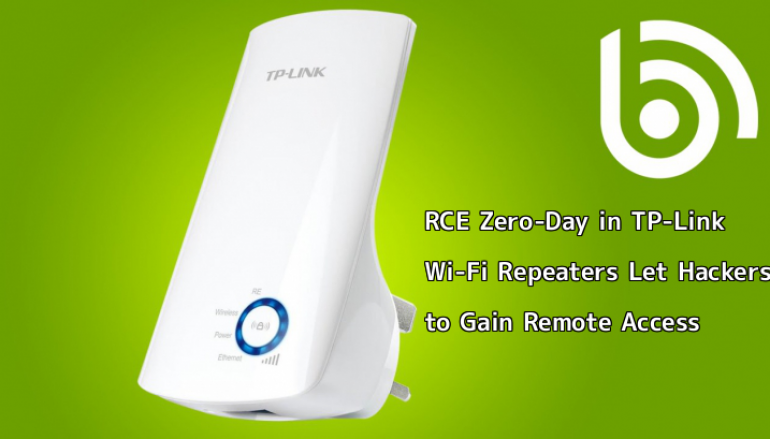
Critical RCE Zero-Day in TP-Link Wi-Fi Repeaters Let Hackers to Gain Remote Access
Researchers discovered a critical zero-day flaw in TP-Link Wi-Fi extender that allows a remote attacker to get complete control over the device and to execute commands in user privileges.
This vulnerability can be tracked as CVE-2019-7406, and it affects the following models: RE650, RE350, RE365, and RE500.
Like other routers, the extender also operates on the MIPS architecture; an attacker could exploit the vulnerability by sending malformed HTTP request without requiring login/authentication to the Wi-Fi extender.
The only concern here is the network setup for an attacker to establish a connection with the extender. If someone is already connected to the target network, they can easily access the device.
IBM X-Force researchers successfully executed shell command on the RE365 Wi-Fi extender. They also see request parameters from the fully compromised device. The parameters include specific user agent field; browser used to access the extender.
By establishing a connection over port 4444, “they able to gain complete root level access to the extender without any privilege escalation, with all processes running as root.”
The vulnerability affects the range of users starting from home to corporate users and lets attackers send a malformed request to the extender, which let an attacker gain unauthenticated access.
TP-Link released patches to address the remote code-execution flaw CVE-2019-7406 for the affected models. Also, TP-Link confirms that no other models have been affected.
Users are recommended to update their firmware: RE365 model, RE500 model, RE650 model, and RE350 model.
This post Critical RCE Zero-Day in TP-Link Wi-Fi Repeaters Let Hackers to Gain Remote Access originally appeared on GB Hackers.






